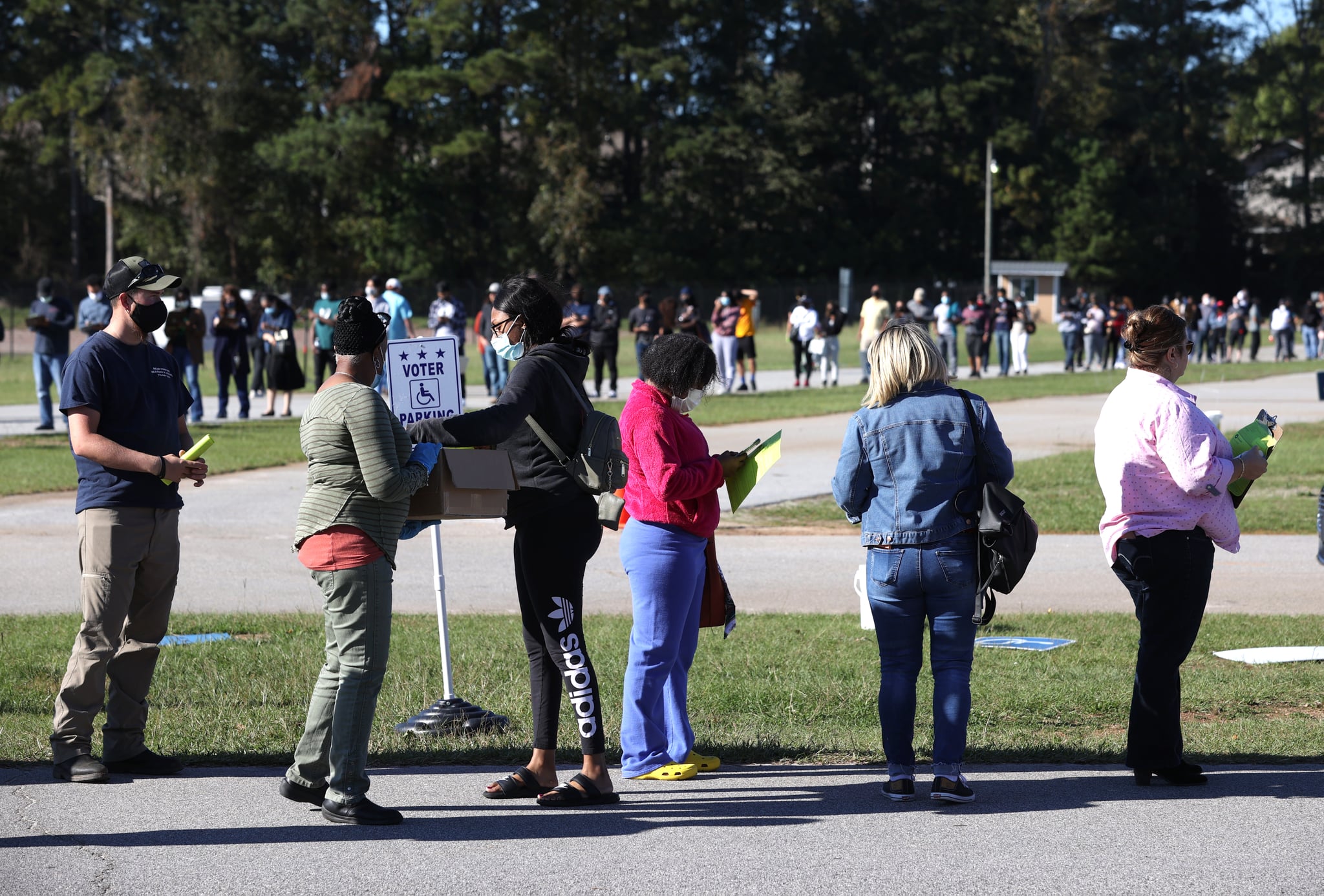When people hear the phrase “voter suppression,” most think about the Jim Crow South, or the plight of “others” in Deep South states. Yes, voter suppression was created to keep all nonwhite men from the ballot box during the Reconstruction era when Black people were finally guaranteed the right to vote by law.
But it’s important to know that even if you don’t live in a Southern state, voter suppression is likely affecting you right now.
Yes, I’m talking about you.
This country is facing a myriad of challenges, from the COVID-19 pandemic to the human-rights crisis at our border. And if 2016 and 2020 taught us anything, we learned just how important every single vote is in determining the future of our country and our communities. It couldn’t be clearer in Texas as women fight for the freedom to make their own decisions about their reproductive health; in California when voters had to make a critical decision on the future of their state in a recall election; and in New York City when many voters used ranked-choice voting for the first time to select their future mayor.
So, let’s say a friend moves from New Jersey to New York right before a local election. She shows up at her polling place with all the documents she needs, but in New York, she can’t register to vote on Election Day. If she chose to live in Washington DC, Illinois, or even Utah, she could have registered that day and made her voice heard on critical decisions — like whether funding goes to policing or schools, keeping our communities clean and taking care of our environment, and fixing the pothole down the street.
You are a New York resident and a registered voter, so you can vote in that election. But what if you need to travel to be with your family in another state on Election Day? Or what if your work shift is during all voting hours? While an exception was made for the COVID-19 pandemic, typically you could not just get your absentee ballot and vote by mail. In New York, the only valid reasons for an absentee ballot are if you are out of the country on Election Day, have an illness or disability, or are incarcerated but still eligible to vote.
These things are not a coincidence — they are intentional decisions that make it harder for all of us to vote.
When we think about voter suppression, we see old images of Black voters being asked to guess the number of jelly beans in a jar, being charged a poll tax to cast their ballots, or, at its worst, being beaten and killed trying to make their voices heard in our democracy. In our more recent history, we’re seeing hundreds of thousands of voters being kicked off voting rolls. Long lines, onerous voter ID laws, fewer early-voting days — or none at all. The list goes on and on.
But voter suppression is also the little things that make it harder for us to make our voices heard in our elections. It’s the roadblocks and challenges that can feel frustrating, or even just annoying, that add up to many being discouraged to engage in the process, and their voices are silenced in our democracy.
Fifty-five million Americans live in states that enacted voter-suppression laws this year. For our friends in Georgia, Texas, and Florida, voter suppression can go beyond the little things. In Harris County, TX, where Houston is located, 127,000 people cast their ballots through drive-through voting. Texas Governor Greg Abbott just signed a bill that bans drive-through voting. In Georgia, parents with their children, seniors, and working moms can wait hours to cast their ballots. Georgia Governor Brian Kemp signed a bill that bans organizations from providing them with food and water while they wait. And after millions of people voted to give individuals in Florida who were formerly incarcerated the right to vote, Governor Ron DeSantis signed legislation that ultimately created a poll tax to silence their voices.
Lawmakers across the country have proposed more than 500 antivoter bills that make it even harder to cast our ballots. They are putting limits on voting by mail and early voting, making it more difficult to register to vote, and trying to take over city elections where the outcome doesn’t swing in their favor.
These lawmakers are using all of these “little things” — and some “big things” — to silence our voices. Especially the voices of young people, Black and Brown voters, working-class voters, and voters with disabilities.
But alas we are not powerless. We can make a real difference, and it starts with making sure we are registered and ready to vote in each and every election. It’s also passing laws to protect voting rights — like the Freedom to Vote Act and the John Lewis Voting Rights Advancement Act. Together, these bills are a critical step forward in fighting voter suppression in states across the country. They pave the way for same-day voter registration, preventing partisan gerrymandering, expanded access to voting by mail and early voting, and restoring voting rights for those who have been previously incarcerated.
Join us at When We All Vote, a national, nonpartisan voting organization launched by Michelle Obama in 2018, in the fight for voting rights. Whether you’re about to head to brunch with friends or that last outdoor concert before it gets cold, call your senators using our tool and tell them to protect our right to vote.
We need you in this fight because it impacts all of us. Let’s take care of each other, and build the country and communities that we deserve.
Source: Read Full Article






